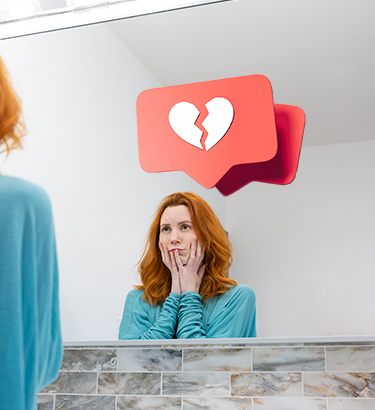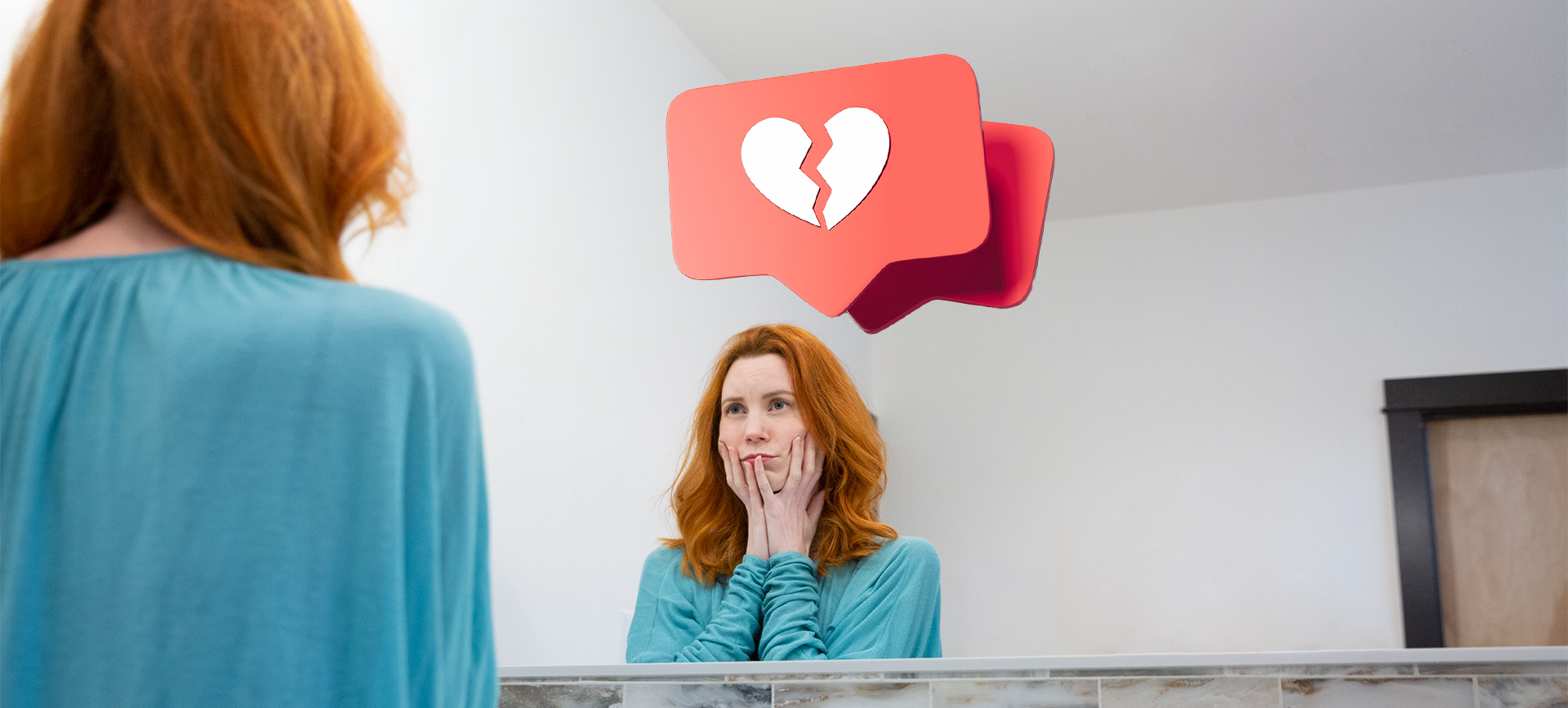When living in a world with so much focus on social media, it can be easy to fall down the rabbit hole of comparisons, whether that's between lifestyles, relationships or bodies. Perhaps unsurprisingly, the journey through this rabbit hole can lead to a damaged body image and an unhealthy relationship with food and exercise.
For many social media users, it can seem nearly impossible to scroll through a daily (or hourly) feed without coming across edited photos highlighting unrealistic body features or advertisements promoting the latest diet culture craze. You know the type—tummy teas, appetite inhibiting lollipops, and so on.











